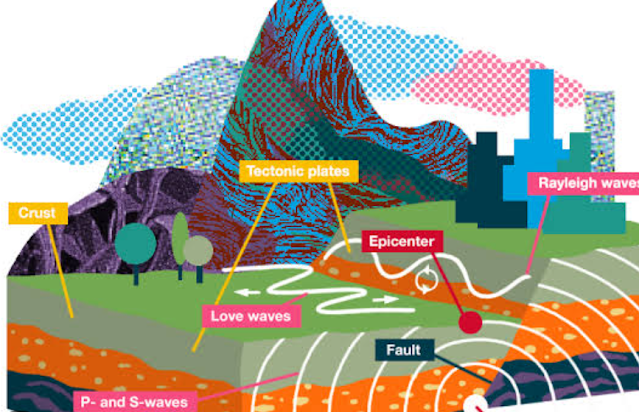earthquake Unraveling the Earthquake Enigma: Understanding the Impact, Causes, and Mitigation Strategies
Earthquakes, one of the most formidable natural disasters, have captivated human curiosity and fear for centuries. These powerful geological phenomena result from the sudden release of energy in the Earth's crust, causing ground shaking that can lead to widespread destruction. This article explores the profound impact of earthquakes on human societies, delves into their underlying causes, and examines the innovative mitigation strategies employed to minimize their catastrophic consequences.
Understanding Earthquakes:
Earthquakes occur due to the movement of tectonic plates beneath the Earth's surface. These plates, colossal pieces of the Earth's crust, continuously shift and interact with each other. When the stress built up along fault lines is released, it causes the ground to shake, leading to an earthquake. The Richter scale and moment magnitude scale are commonly used to measure the intensity of earthquakes, quantifying the seismic energy released during an event.
Impact on Human Societies:
The impact of earthquakes on human societies is multifaceted and devastating. The immediate consequences include buildings collapsing, landslides, tsunamis, and infrastructural damage. Additionally, earthquakes often result in loss of life, displacement of communities, disruption of essential services, and economic setbacks. The psychological toll on survivors and affected communities is immeasurable, leading to long-term trauma and emotional distress.
Causes of Earthquakes:
Tectonic Plate Movements: Most earthquakes are caused by the movement of tectonic plates. When these plates collide, pull apart, or slide against each other, immense stress builds up along fault lines, eventually causing an earthquake.
Volcanic Activity: Earthquakes can occur in volcanic regions due to the movement of magma beneath the Earth's crust. These seismic events are often precursors to volcanic eruptions.
Human Activities: Certain human activities, such as mining, reservoir-induced seismicity (due to the filling of large reservoirs), and hydraulic fracturing (fracking), can induce earthquakes. These are known as induced seismic events and are a growing concern in regions with significant human activity.
Mitigation and Preparedness:
Early Warning Systems: Advanced seismic monitoring and early warning systems have been developed to detect initial seismic waves and provide seconds to minutes of warning before damaging waves arrive. This technology gives people and automated systems the precious time needed to take protective actions.
Building Codes and Engineering Innovations: Strict implementation of earthquake-resistant building codes and innovative engineering designs can significantly reduce the damage caused by earthquakes. Techniques such as base isolation and flexible building materials enhance a structure's ability to withstand seismic forces.
Community Preparedness: Educating communities about earthquake preparedness, organizing drills, and establishing evacuation routes are crucial in minimizing casualties and injuries. Public awareness campaigns help people understand the importance of being prepared for such disasters.
Research and Prediction: Ongoing research into earthquake prediction and understanding the Earth's seismic behavior is essential. Scientists are continuously studying seismic patterns and geological formations to improve our ability to predict earthquakes accurately.
Conclusion:
Earthquakes, though natural and inevitable, need not always result in widespread devastation. Through a combination of scientific understanding, technological innovation, and community preparedness, the impact of earthquakes on human societies can be mitigated. It is imperative that governments, scientists, engineers, and communities work together to create a safer environment for all, where the Earth's mighty tremors are met with resilience, preparation, and the unyielding spirit of humanity.



Comments